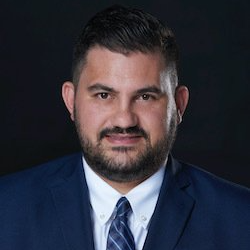Hanlon Law - Truths

In some states, the defense of craziness will certainly enable an accused to stay clear of jail yet will certainly require that the defendant be held in a psychological facility for therapy. The protection of intoxication also depends on the concept that the accused can not satisfy all of the aspects of the criminal activity since she or he did not understand what he or she was doing.

Some Known Questions About Hanlon Law.
Mistake of law uses when a criminal defendant thought his or her actions were legal. This defense uses in only extremely minimal scenarios. Self-defense (or protection of one more) Pressure Need Another classification of defenses uses when the accused devoted the criminal offense but argues that she or he was justified in doing so.
An offender may argue, for circumstances, that he did fire a burglar but did so in protection due to the fact that the trespasser was intimidating him with a knife. Similarly, under a defense of duress, the criminal accused argues that she or he only dedicated the criminal activity because she or he was forced to do so by someone else.
Ultimately, under a need defense, the criminal offender might argue that he or she committed the criminal offense in order to prevent a much more considerable damage. As an example, the defendant might compete that it was needed for him to steal a vehicle in order to chase after down an additional person that was endangering to use an explosive device.
Initially, the offender might argue that no criminal activity occurred as a result of the protection of authorization. The defendant might argue that although sex-related intercourse happened, it was not rape since there was permission. Similarly, he may suggest that there was no assault since the target consented to the injury.
Things about Hanlon Law
Third, the offender might argue entrapment. Entrapment occurs when the federal government induces a specific to devote the criminal activity as well as then tries to penalize the individual for it. The defendant may argue that no criminal offense would certainly have happened however, for the federal government's attraction, and also he or she should for that reason not be called to account.
To efficiently convict a criminal offender, the government has to prove the defendant was guilty beyond a sensible doubt. One of the most common defenses criminal defendants may raise can be grouped into two basic groups first, denying the defendant did anything (including the alibi protection), and 2nd, acknowledging the accused did the act but just under mitigating scenarios (including self-defense, insanity, entrapment, and drunkenness defenses).
If an accused is implicated of dedicating a break-in however can prove that he was at the dental expert or conference with a service technician during the time of the criminal offense, he might be successful in his alibi defense. Self-defense was the essential concern elevated in the current George Zimmerman case. https://www.livebinders.com/b/3316935?tabid=dcb25163-dce7-9822-db32-bee6a10fb134.
The madness protection is an incredibly complex defense, however it is normally based upon the idea that punishment is only justified if the accused is capable of regulating their behavior. Due to the fact that some of the mentally ill are not qualified of differentiating right from incorrect, the craziness defense avoids them from being criminally responsible.
Getting The Hanlon Law To Work
If, however, a court believes that the offender was predisposed to devote the criminal offense anyhow, this defense won't be successful. In Tennessee, voluntary intoxication does not excuse criminal activities. A protection of uncontrolled drunkenness may prove effective. If you've been accused of a criminal activity, call a qualified criminal protection lawyer to help you consider your finest strategy as well as attain the best possible end result in your case.
Below are a handful of means in which a defendant may insist an effective protection. To convict a criminal accused, the district attorney should prove the offender guilty past a reasonable question. As part of this procedure, the defendant is given a possibility to why not try here provide a defense. An accused might place a defense by remaining silent, absent any kind of witnesses as well as suggesting that the prosecutor failed to verify his or her situation.
Yet there are many other kinds of defenses, from "I really did not do it" to "I did it, but I was as well intoxicated to recognize what I was doing."All people implicated of a criminal offense are legitimately assumed to be innocent up until they are founded guilty, either in a test or as an outcome of begging guilty.
Comments on “About Hanlon Law”